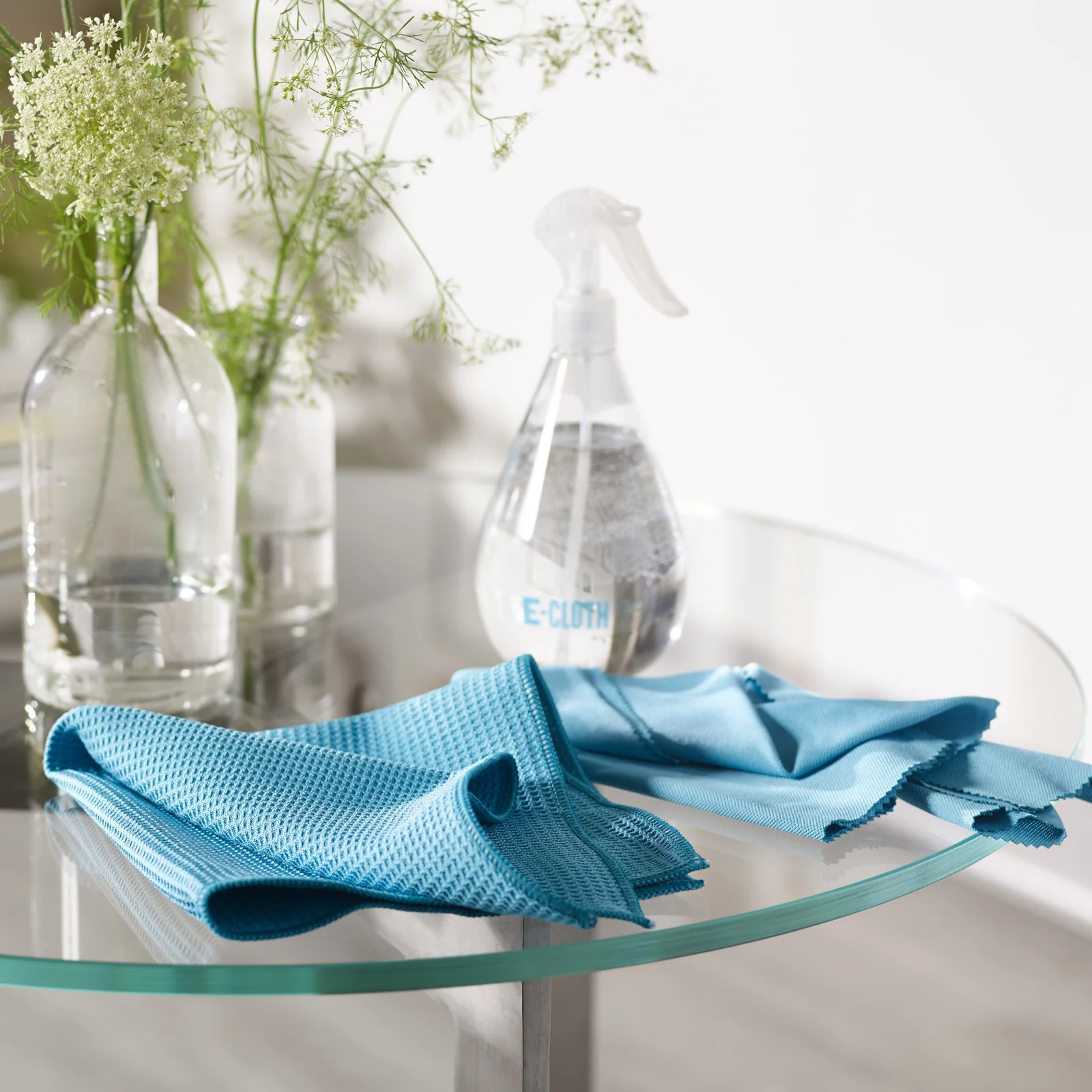Table of content:
How Often You Should Clean Your Laptop keyboard
Consequences of Skipping Laptop keyboard Cleaning
DIY Methods to Clean Your Laptop keyboard
Keeping your laptop keyboard clean is essential for both hygiene and performance. How often you should clean it depends on your usage habits and environment, but regular maintenance helps prevent sticky keys, lingering odors, and even potential hardware issues. Whether you use your laptop daily in a tidy space or often snack at your desk, establishing a cleaning routine tailored to your needs will keep your keyboard responsive, looking fresh, and free from unwanted grime. A clean keyboard not only improves your typing experience but also leaves a better impression on anyone who might share or see your device.

A Clean You Can See
Our high-performance microfiber products simplify cleaning, making it quick, easy, and effective, so you can enjoy visible results without the fuss. No streaks, just results.
How Often You Should Clean Your Laptop keyboard
Frequency Guidelines for Laptop Keyboards
- Every Seven Days for Moderate Use: For most people who use their laptops regularly in a relatively clean environment, cleaning your keyboard about once a week is sufficient to keep dust, oils, and everyday debris in check.
- Every 2-3 Days for Heavy or Food-Adjacent Use: If you tend to eat or drink near your laptop or you use it intensively throughout the day, consider cleaning more frequently. Frequent use in conjunction with environmental particles like crumbs or beverage spills can result in more buildup that needs regular attention.
- Shared or Dust-Prone Environments: In areas where multiple people use the same device, or if your workspace has higher dust levels, cleaning every few days can help minimize debris accumulation and maintain smoother key responses.
Why Regular Cleaning Matters
- Debris Accumulation: Even with gentle use, dust and oils from your fingers settle between the keys. Over time, they can lead to sticky or unresponsive keys if not removed regularly.
- Key Response and Longevity: Regular maintenance helps keep keys functioning properly. Debris under the keys can affect the tactile feedback and, in some cases, cause physical wear or misalignment.
- Environmental Considerations: Factors such as air quality and occasional spills influence how quickly grime builds up. Adjusting your cleaning frequency based on your environment ensures your keyboard remains in optimal condition.
Tailor Your Cleaning Routine
- Personal Habits: Consider your own habits, like snacking at your desk, which can increase the need for more frequent cleaning.
- Usage Patterns: High-frequency usage or multi-tasking in shared workspaces calls for a tailored cleaning schedule. Monitoring how quickly debris accumulates will help you set the right cadence.
Streak-Free Wherever You Need It
E-Cloth is committed to delivering a clean you can see—effortlessly erasing messes with just water for a spotless shine, free of streaks and added chemicals.

Consequences of Skipping Laptop keyboard Cleaning
- Sticky keys and unresponsive typing: Dust, crumbs, and oils from your fingers build up under and around keys, making them stick or stop working altogether. If you’ve ever mashed the “E” key and gotten nothing, you know the pain.
- Unwanted guests (hello, germs and grime): Your keyboard is a magnet for whatever’s on your hands—think food residue, sweat, and whatever you just touched. Over time, this creates a cozy home for grime and can even attract pests like ants if you snack at your desk.
- Lingering odors: All that gunk doesn’t just look bad—it can start to smell. If your laptop keyboard has a mysterious funk, it’s probably overdue for a cleaning.
- Worn-out keys and faded letters: Dirt acts like sandpaper, wearing down the letters and finish on your keys. This means your keyboard can start to look old and tired way before its time.
- Possible hardware issues: Debris can work its way inside, potentially causing electrical problems or short circuits. That’s a fancy way of saying your keyboard might stop working, and repairs aren’t cheap.
- Reduced productivity and frustration: A dirty keyboard isn’t just gross—it slows you down. Missed keystrokes, stuck keys, and general ickiness make typing a chore instead of a breeze.
- Impression management: If you ever work in public or share your laptop, a filthy keyboard sends the wrong message. It’s like showing up to a meeting with spinach in your teeth—people notice.
DIY Methods to Clean Your Laptop keyboard
.svg)
Isopropyl Alcohol and Cotton Swabs
Dampen a cotton swab with isopropyl alcohol and gently run it between the keys of your laptop keyboard. The alcohol evaporates quickly, removing dirt, grime, and germs without damaging electronics. Repeat as needed for a thorough clean.
.svg)
Compressed Air and Soft Brush
Hold your laptop upside down and gently tap to dislodge loose debris. Use a can of compressed air to blow out dust from between the keys, then sweep away remaining particles with a soft brush. This method safely removes dirt without damaging the keyboard.
.svg)
Sticky Note Edge for Dust Removal
Take a sticky note and run the adhesive edge between the keys of your laptop keyboard. The sticky edge lifts out dust, crumbs, and debris, making it an easy and effective way to keep your keyboard clean without liquids or special tools.
.svg)
Microfiber Cloth Dampened with Vinegar Solution
Mix equal parts white vinegar and water in a small bowl. Lightly dampen a microfiber cloth with the solution (do not soak). Gently wipe the laptop keyboard, making sure not to let excess liquid seep between the keys. This method removes grime and disinfects without damaging electronics.
.svg)
Risky Liquid Damage
Using isopropyl alcohol and cotton swabs can cause liquid to seep under keys, risking damage to internal components or short circuits if excess liquid is used or not fully dried, potentially leading to keyboard or laptop malfunction.
.svg)
Hidden Debris Retention
Using compressed air and a soft brush may push debris deeper under the keys or trap it in hard-to-reach areas, making it harder to remove and potentially causing keyboard malfunction over time.
.svg)
Limited Dust Reach
Sticky notes have limited adhesive area and may not reach deep between keys, leaving dust and debris behind. This method is less effective for thorough cleaning, especially for particles trapped under or around the edges of the keys.
.svg)
Potential Corrosion Risk
Using a vinegar solution on a laptop keyboard can increase the risk of corrosion, as vinegar is acidic and may damage metal components or circuitry if moisture seeps inside, potentially leading to malfunction or long-term harm.
Ready for an Easier Way to Clean?
Skip the mixing, spraying, and scrubbing. With E-Cloth, you get a streak-free shine using just water—no added chemicals, no hassle. Make every window sparkle the simple way.
Explore other Articles
Headphones
Learn how often to clean your headphones for optimal sound and hygiene. Simple tips to keep them fresh and lasting longer.
Bookshelves
Discover the ideal frequency to clean your bookshelves for a dust-free, organized, and fresh home library.
Jeans
Discover the ideal frequency to clean your jeans for lasting style, comfort, and fabric care. Keep them fresh and durable!
Range hood filter
Learn how often to clean your range hood filter for optimal kitchen air quality and appliance efficiency. Keep it fresh and safe!
Washing machine
Learn how often to clean your washing machine for optimal performance and freshness. Keep your laundry fresh and your machine efficient!
Garage floors
Discover the ideal frequency for cleaning your garage floors to keep them spotless and well-maintained year-round.
Experience Real Cleaning
A Clean You Can See
Experience Real Cleaning


